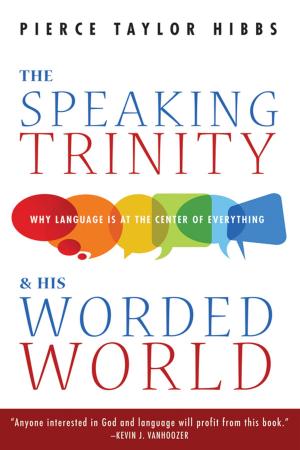Eucharist and Globalization
Redrawing the Borders of Eucharistic Hospitality
Nonfiction, Religion & Spirituality| Author: | Cláudio Carvalhaes | ISBN: | 9781630870614 |
| Publisher: | Wipf and Stock Publishers | Publication: | October 30, 2013 |
| Imprint: | Pickwick Publications | Language: | English |
| Author: | Cláudio Carvalhaes |
| ISBN: | 9781630870614 |
| Publisher: | Wipf and Stock Publishers |
| Publication: | October 30, 2013 |
| Imprint: | Pickwick Publications |
| Language: | English |
The ritual of eating and drinking together is one of the most important Christian events. Often called Eucharist, Lord's Supper, or Communion, this sacrament is about the presence of Christ transforming not only those who participate in it but also the world. In this book, the author engages this Christian liturgical act with movements of people around our globalized world and checks the sacramental borders of hospitality. The author calls our attention to the sacramental practices of Reformed churches and, from this liturgical practice, challenges Christian churches to expand the borders of hospitality. Engaging several critical lenses around the notion of the sacrament--namely, Greco-Roman meals, Calvin's theology, and feminist and Latin American theologies--the author challenges theological and liturgical understandings of the Eucharist. He fosters an interreligious dialogue around the table and ends up using ritual theory to expand the circles of traditions, vocabularies, and practices around the sacrament. Proposing a borderless border eucharistic hospitality, the author encourages readers to ask who and where we are when we get together to eat and drink, and how this liturgical act around Jesus' table/meal can transform the lives of the poor, our communities, societies, and the world.
The ritual of eating and drinking together is one of the most important Christian events. Often called Eucharist, Lord's Supper, or Communion, this sacrament is about the presence of Christ transforming not only those who participate in it but also the world. In this book, the author engages this Christian liturgical act with movements of people around our globalized world and checks the sacramental borders of hospitality. The author calls our attention to the sacramental practices of Reformed churches and, from this liturgical practice, challenges Christian churches to expand the borders of hospitality. Engaging several critical lenses around the notion of the sacrament--namely, Greco-Roman meals, Calvin's theology, and feminist and Latin American theologies--the author challenges theological and liturgical understandings of the Eucharist. He fosters an interreligious dialogue around the table and ends up using ritual theory to expand the circles of traditions, vocabularies, and practices around the sacrament. Proposing a borderless border eucharistic hospitality, the author encourages readers to ask who and where we are when we get together to eat and drink, and how this liturgical act around Jesus' table/meal can transform the lives of the poor, our communities, societies, and the world.















